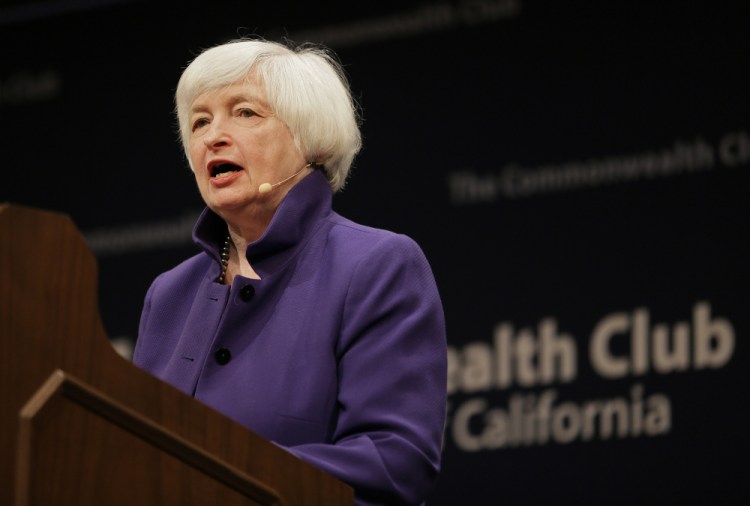WASHINGTON — The economy added 209,000 jobs in July, according to the U.S. Department of Labor data released Friday morning, surpassing economists’ expectations.
The unemployment rate ticked down to 4.3 percent, compared with 4.4 percent in June, and wages rose by 2.5 percent from the year before to $26.36 in July.
The sectors with the strongest gains were health care, food and beverage and business services.
Maine’s unemployment rate was 3.6 percent in June 2017, according to the state Department of Labor.
The U.S. labor market has made strong and steady gains in recent months, even as this period of economic expansion has stretched into the third longest in history. That has driven U.S. stock markets to record highs, with the blue-chip Dow Jones Industrial Average closing above 22,000 Wednesday for the first time in history.
July’s additions also signify a notable turning point for the U.S. economy: After accounting for shifts in population, the level of employment has returned to what it was at in November 2007, before the recession decimated the job market, according to new research by the Brooking Institution’s Hamilton project.
“It does not mean there’s no slack in the economy, (or) that we’re at full employment. But it does mean the job losses from the great recession are behind us,” said Diane Whitmore Schanzenbach, one of the report’s authors.
Economists surveyed by Bloomberg had expected 180,000 jobs to be added in the month, in line with average monthly gains for the first six months of the year.
The economy’s strength has encouraged the Federal Reserve to continue to gradually raise interest rates to more normal levels, after years of keeping lending easy to stimulate the economy. Friday’s job figures appear unlikely to upset that trend. Futures contracts indicate that most investors expect central bankers to hold interest rates steady when they meet in September. Those contracts also put the odds of a rate hike December at over 40 percent.
Investors should bet on more rate hikes this year, Chris Rupkey, chief financial economist at MUFG, said in an email to clients Thursday. “Inflation is coming and the Fed has to push interest rates back to normal levels before inflation gets there.”
In a call on Thursday to state their support for Fed Chair Janet Yellen and urge President Trump to reappoint her when her term expires early next year, members of a coalition called Fed Up argued that the economy’s recovery is not yet complete, and that the Fed should maintain low interest rates to allow workers, especially lower-income communities of color, to recover from the financial crisis.
“We still don’t look like an economy that should still be raising interest rates, and we absolutely should not be raising interest rates in an autopilot kind of way,” said Josh Bivens, director of research at the Economic Policy Institute.
Copy the Story LinkSend questions/comments to the editors.



Success. Please wait for the page to reload. If the page does not reload within 5 seconds, please refresh the page.
Enter your email and password to access comments.
Hi, to comment on stories you must . This profile is in addition to your subscription and website login.
Already have a commenting profile? .
Invalid username/password.
Please check your email to confirm and complete your registration.
Only subscribers are eligible to post comments. Please subscribe or login first for digital access. Here’s why.
Use the form below to reset your password. When you've submitted your account email, we will send an email with a reset code.